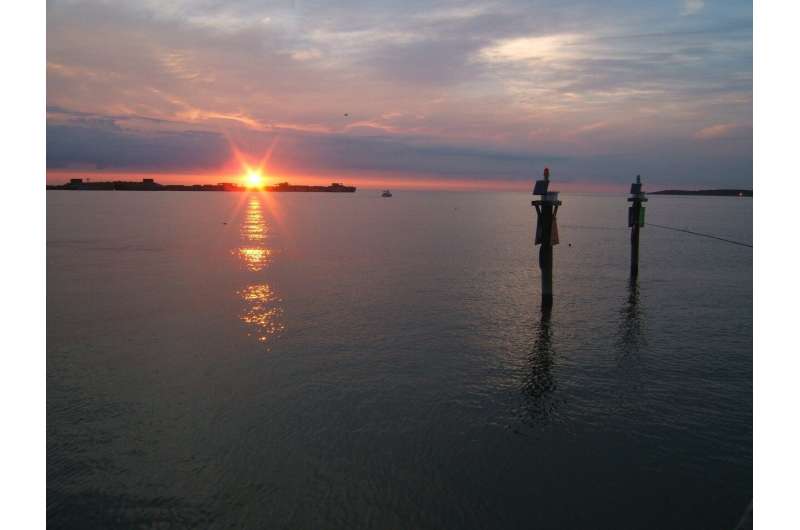Credit: CC0 Public Domain
Maryland scientists have been warning of a growing "dead zone" in the Chesapeake Bay. Now the numbers are in, confirming their dire warnings were correct.
Natural Resources Department data shows an area with little to no oxygen spread to 2 cubic miles (8 cubic kilometers) by late July, making it one of the worst in decades. By comparison, July dead zones averaged about 1.35 cubic miles (6 cubic kilometers) for the past 35 years. The worst section includes the lower Potomac and Patuxent rivers and much of the Bay, from Baltimore to the mouth of the York River.
University of Maryland environmental scientists say heavy rains washed wastewater and agricultural runoff into the bay and produced oxygen-stealing algae. Scientists fear it could harm crabs, oysters and the state's seafood industry.
© 2019 The Associated Press. All rights reserved.






















